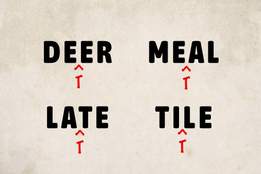In forte we have a word derived from French that in its "strong point" sense has no entirely satisfactory pronunciation. Usage writers have denigrated \ˈfȯr-ˌtā\ and \ˈfȯr-tē\ because they reflect the influence of the Italian-derived forte entry 2. Their recommended pronunciation \ˈfȯrt\, however, does not exactly reflect French either: the French would write the word le fort and would pronounce it more similar to English for. So you can take your choice, knowing that someone somewhere will dislike whichever variant you choose. All are standard, however. In British English \ˈfȯ-ˌtā\ and \ˈfȯt\ predominate; \ˈfȯr-ˌtā\ and \fȯr-ˈtā\ are probably the most frequent pronunciations in American English.
forte
2 of 3adverb or adjective
for·te
ˈfȯr-ˌtā 

ˈfȯr-tē
: loud
—used as a direction in music
violins played the passage forte
Love words? Need even more definitions?
Merriam-Webster unabridged










Share